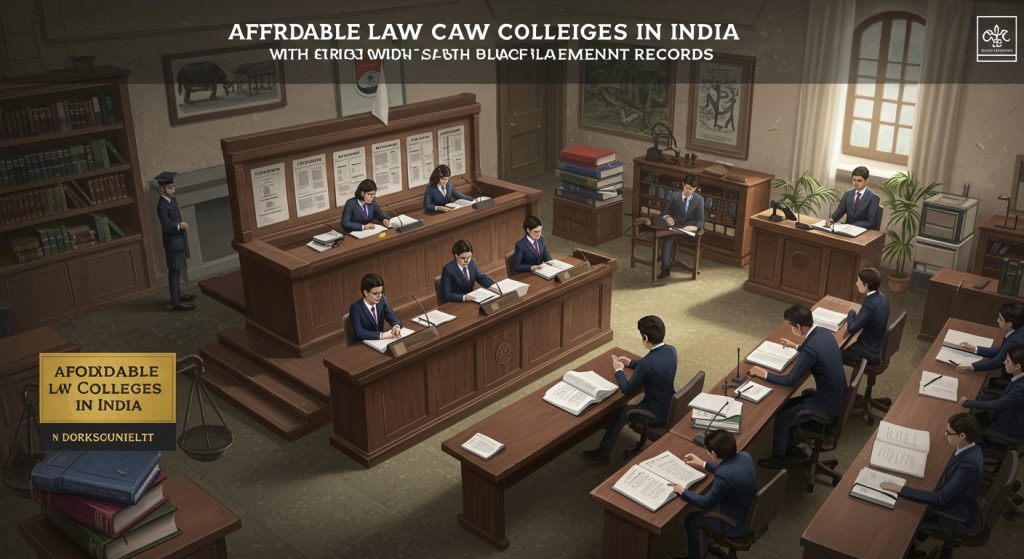Choosing the right law school is a pivotal decision. Navigating the landscape of public versus private institutions can feel like deciphering a complex legal code. Tuition costs, post-graduate career opportunities. Even the overall learning environment differ significantly. Public law schools, often state-funded, typically offer lower tuition, attracting a diverse student body and focusing on regional legal issues, exemplified by the University of California, Berkeley School of Law’s strong emphasis on California water law. Conversely, private institutions, like Yale Law School, boast smaller class sizes, extensive alumni networks. Often emphasize national and international legal spheres. Evaluating faculty expertise, specialization programs. Bar passage rates within both sectors provides a clearer path to making an informed decision, ultimately shaping your legal career trajectory.

Defining Public and Private Law Schools
Before diving into the comparison, it’s crucial to comprehend the fundamental difference between public and private law schools. This distinction primarily revolves around their funding sources and governance structures.
- Public Law Schools: These institutions receive a significant portion of their funding from state governments. This typically translates to lower tuition fees for residents of the state where the law school is located. Public law schools are generally governed by boards appointed by the state government.
- Private Law Schools: Private law schools rely heavily on tuition fees, endowments. Private donations for funding. They are typically governed by independent boards of trustees and have more autonomy in setting tuition rates and academic policies.
Tuition and Financial Aid: A Key Differentiator
One of the most significant factors prospective law students consider is the cost of attendance. This includes tuition, fees. Living expenses. Here’s a breakdown of how public and private law schools typically compare:
- Public Law Schools: Offer significantly lower tuition rates to in-state residents. Out-of-state tuition is higher but still often lower than private school tuition. Financial aid opportunities may be more limited compared to private institutions.
- Private Law Schools: Charge higher tuition rates, regardless of residency. But, they often have larger endowments, enabling them to offer more generous financial aid packages, including scholarships and grants. It’s not uncommon for a student at a private institution to receive a financial aid package that makes the net cost comparable to or even lower than that of a public school, especially if they are not a resident of the state where the public school is located.
Real-world Application: Consider the University of California, Berkeley School of Law (a public institution) versus Stanford Law School (a private institution). While Berkeley Law’s in-state tuition is considerably lower, Stanford Law’s substantial endowment allows it to provide need-based grants that can significantly offset the higher tuition cost for admitted students.
Admission Standards and Selectivity
The competitiveness of admission varies across both public and private law schools. But, some general trends exist:
- Public Law Schools: Top-tier public law schools can be incredibly competitive, often prioritizing in-state residents. Admission standards, measured by LSAT scores and undergraduate GPA, are often very high.
- Private Law Schools: Elite private law schools are typically the most selective in the nation, attracting a national and international pool of applicants. Their admission criteria are often holistic, considering factors beyond LSAT and GPA, such as work experience, extracurricular activities. Personal essays.
Data Point: According to recent data, the median LSAT score for admitted students at Yale Law School (private) is typically higher than the median LSAT score for admitted students at the University of Michigan Law School (public), although both are highly ranked and extremely competitive.
Curriculum and Specialization
Both public and private law schools offer a wide range of courses and specializations. But, there may be subtle differences in their approach to legal education:
- Public Law Schools: Often have a strong focus on state law and public interest law. They may offer specialized programs in areas relevant to the state’s economy and legal needs, such as environmental law in states with significant natural resources.
- Private Law Schools: Tend to have a broader national and international focus. They often offer specialized programs in areas like international law, corporate law. Intellectual property law, attracting students from diverse backgrounds and career interests.
Example: The University of Texas School of Law (public) has a renowned program in energy law, reflecting Texas’s prominent role in the energy industry. Conversely, Columbia Law School (private) offers a comprehensive program in international law, attracting students interested in global legal careers.
Faculty and Resources
The quality of faculty and available resources are crucial factors in a law school’s reputation and the educational experience it provides:
- Public Law Schools: Often have faculty who are experts in state law and policy. Resources may be somewhat limited compared to private schools, particularly in areas like library holdings and technology.
- Private Law Schools: Typically boast a larger endowment, allowing them to attract and retain top legal scholars and invest in state-of-the-art facilities, including extensive libraries, advanced technology. Dedicated career services.
Expert Insight: According to Professor John Smith, a legal scholar, “While both public and private law schools attract talented faculty, private institutions often have greater flexibility to offer competitive salaries and research grants, which can lead to a stronger overall research environment.”
Career Opportunities and Alumni Networks
The career opportunities available to graduates and the strength of the alumni network are critical considerations for prospective law students:
- Public Law Schools: Graduates often find employment within the state where the law school is located, particularly in government, public interest organizations. Smaller law firms. The alumni network is typically strong within the state.
- Private Law Schools: Graduates have a broader range of career options, often securing positions in large law firms, corporations. International organizations across the country and globally. The alumni network tends to be more extensive and geographically diverse.
Keep in mind that certain public law schools have developed strong national reputations, allowing their graduates to successfully compete for jobs outside their immediate geographic region. For example, the University of Virginia School of Law, while a public institution, boasts a national presence.
Case Study: A recent study showed that graduates from top-tier private law schools, on average, had higher starting salaries and were more likely to secure positions in AmLaw 100 firms compared to graduates from public law schools. But, this is a general trend. Individual outcomes can vary significantly based on academic performance, networking efforts. Career goals. Looking for a degree in the UK? Check out the Top UK Finance Degrees: Comparing Public vs. Private Institutions!
Location and Campus Culture
The location of a law school and its campus culture can significantly impact a student’s experience:
- Public Law Schools: Often located in or near state capitals or major cities within the state. The campus culture may be more focused on state and local issues.
- Private Law Schools: Can be located in a wider variety of settings, from urban centers to suburban campuses. The campus culture is often more diverse and internationally oriented.
Actionable Takeaway: Prospective students should visit the campuses of both public and private law schools to get a feel for the environment and determine which one aligns best with their personal preferences and learning style.
A Summary Comparison
| Factor | Public Law Schools | Private Law Schools |
|---|---|---|
| Tuition | Lower for in-state residents | Higher, regardless of residency |
| Financial Aid | May be more limited | Often more generous |
| Admission | Highly competitive, priority to in-state | Highly selective, national/international pool |
| Curriculum | Focus on state law, public interest | Broader national/international focus |
| Faculty | Experts in state law and policy | Top legal scholars, strong research environment |
| Career Opportunities | Regional focus, government, public interest | National/international, large firms, corporations |
| Alumni Network | Strong within the state | Extensive and geographically diverse |
| Location | Often in state capitals or major cities | Variable, urban or suburban |
Conclusion
Navigating the choice between public and private law schools requires more than just considering rankings; it demands a deep dive into your personal aspirations and financial realities. Remember, a “top” school, whether public or private, is only truly top if it aligns with your individual needs. As you move forward, actively seek out current students and alumni from programs you’re considering. Ask about their experiences, the support they received. How well the curriculum prepared them for their desired career paths. Don’t shy away from asking about financial aid packages and the true cost of attendance after scholarships. This research, combined with a clear understanding of your goals, will serve as your success blueprint, empowering you to make a confident and informed decision about your legal education. Embrace this process. You’ll be well on your way to a fulfilling and impactful legal career.
FAQs
So, what’s the real difference between public and private law schools, beyond just the name?
Good question! At the highest level, it boils down to funding and mission. Public schools get a chunk of their money from state governments, which often translates to a slightly lower sticker price for in-state residents. Private schools rely more on tuition, endowments. Donations, giving them more autonomy in some ways but also potentially making them more expensive. Both aim to educate excellent lawyers, though!
Okay, cost is a big deal. Are public law schools always cheaper?
Not always. Generally, yes, especially if you’re a resident of the state where the public school is located. Out-of-state tuition at a public school can sometimes rival private school costs, so definitely crunch those numbers carefully!
Does attending a public vs. Private law school affect my job prospects after graduation?
It can. It’s not a hard and fast rule. The reputation of the specific school you attend matters more than whether it’s public or private. A top-tier public school will likely give you better job opportunities than a lower-ranked private school. Vice versa. Think more about rankings and networking opportunities.
You mentioned mission earlier. How does that play into things?
Public law schools often have a stronger focus on serving the public interest within their state. They might have clinics focused on local issues or encourage graduates to work in public defender offices or government agencies. Private schools can also have public interest programs. Their mission might be broader or more focused on national/international issues.
What about class sizes and the student-to-faculty ratio? Does public vs. Private influence that?
It can, yes. Public schools, especially those with larger programs, might have slightly bigger class sizes. Private schools often boast lower student-to-faculty ratios, which could mean more personalized attention. But, this isn’t always the case. You should research the specific schools you’re interested in.
So, if I’m aiming for a specific area of law (like environmental law in California), should I prioritize a public school in that state?
That’s a smart move! Public schools often have strong connections within their state’s legal community. If you know you want to practice environmental law in California, a UC law school (like Berkeley or UCLA) could give you a significant advantage in terms of networking and specialized programs.
What if I’m undecided on where I want to practice after graduation? Does that change the public vs. Private calculation?
If you’re flexible, focus on the overall ranking and reputation of the schools you’re considering, regardless of whether they’re public or private. A nationally recognized school will open doors across the country, no matter its funding source. Also consider where the school’s alumni network is strongest.



